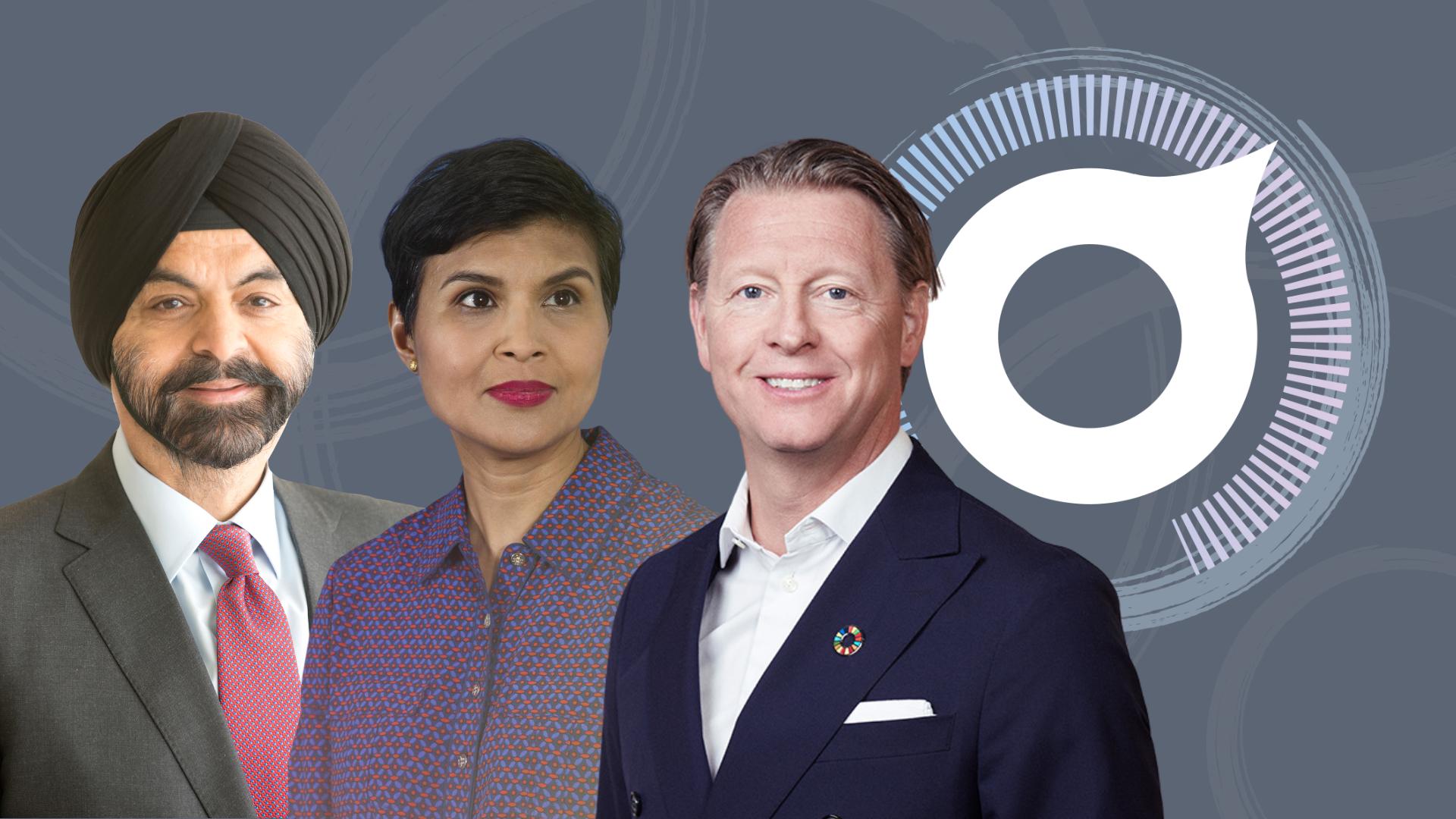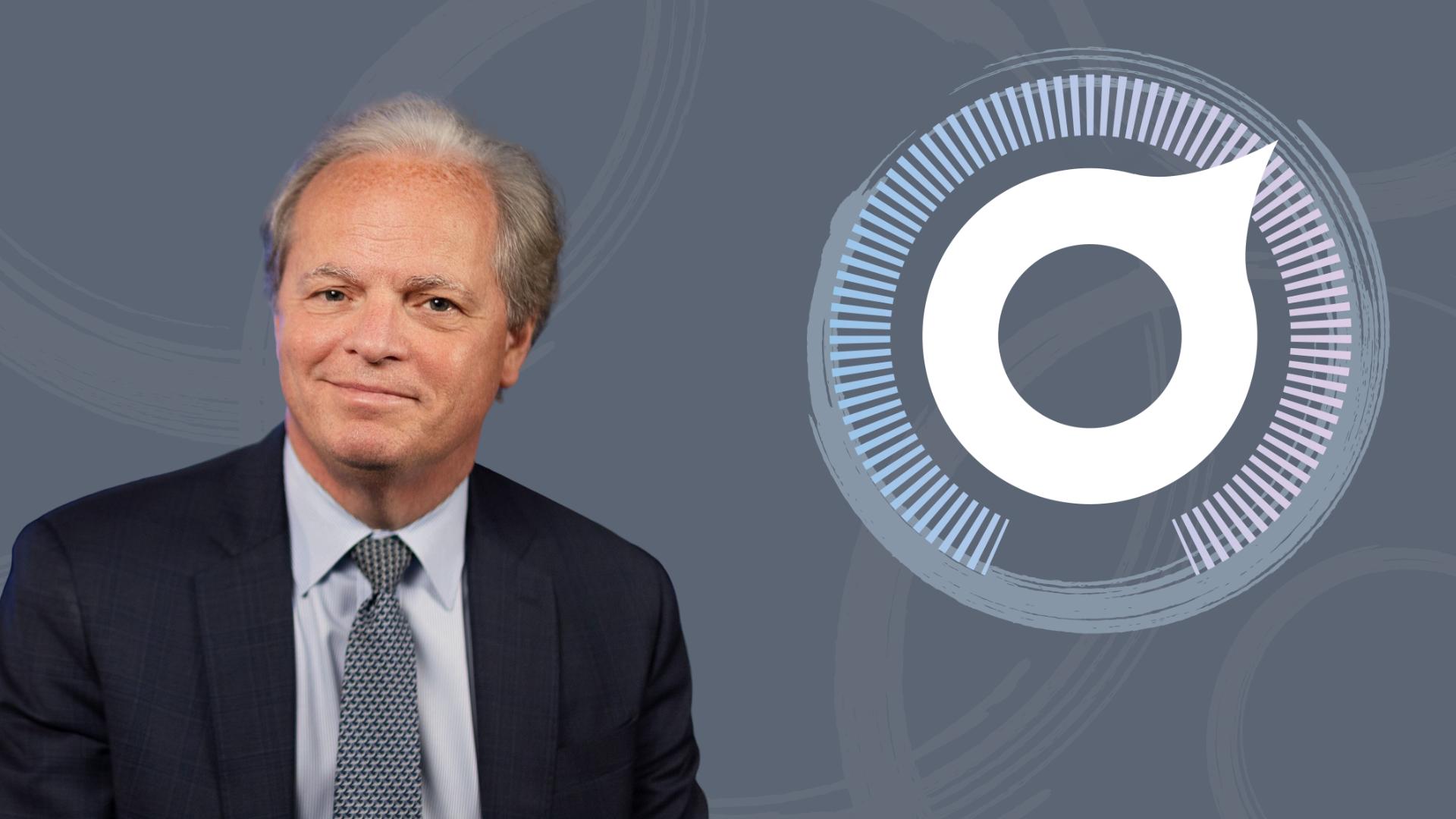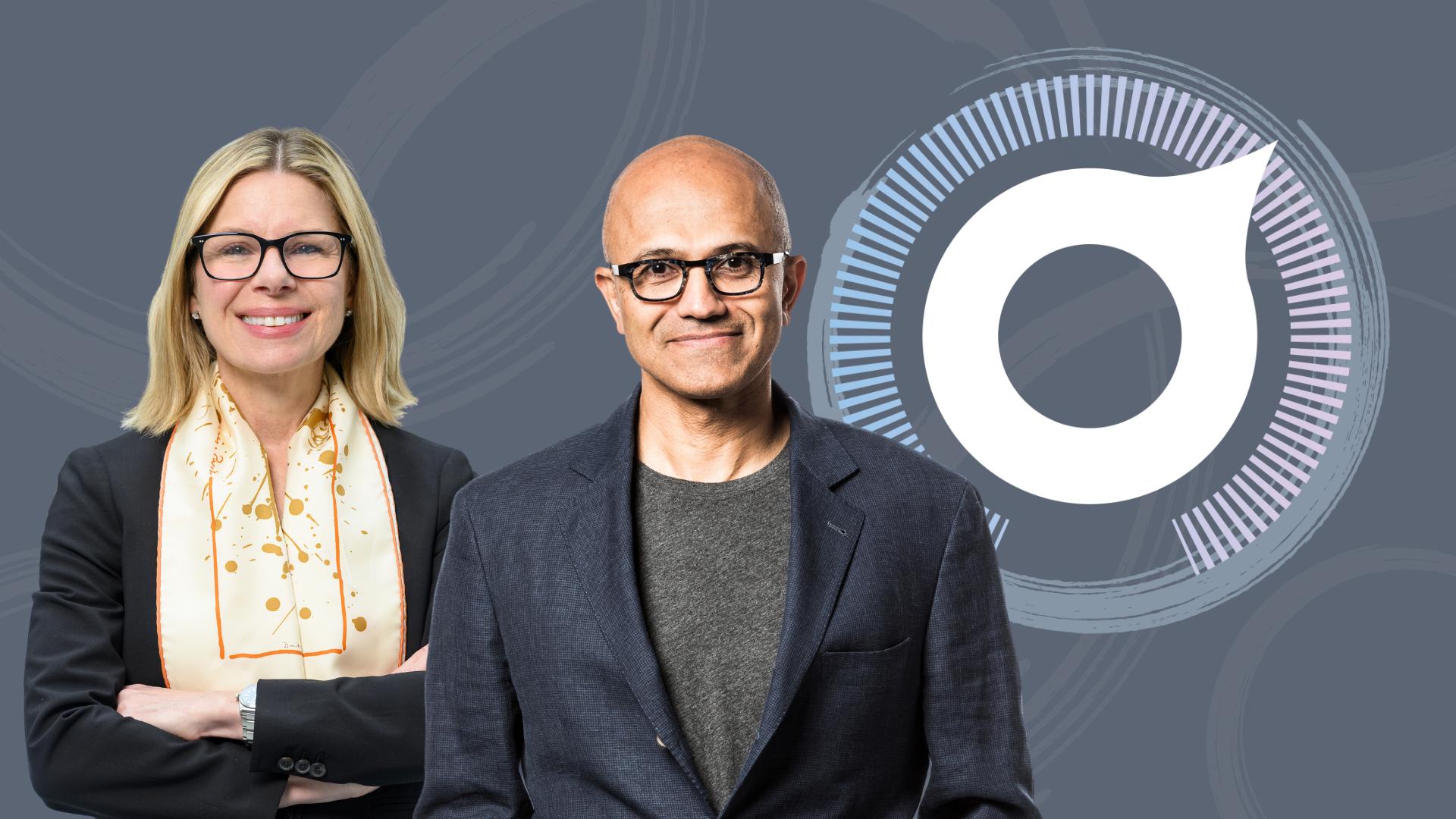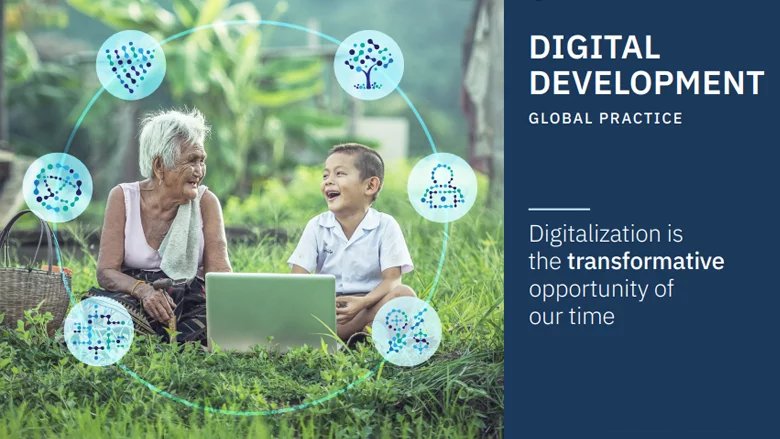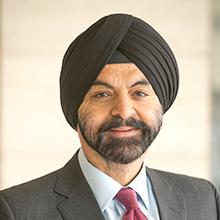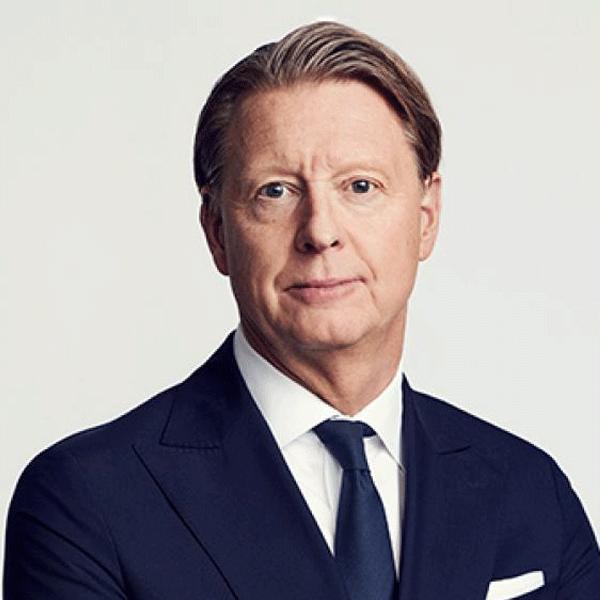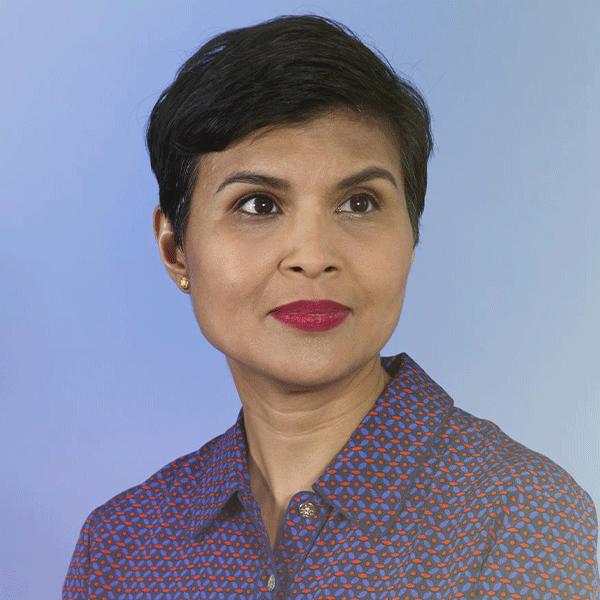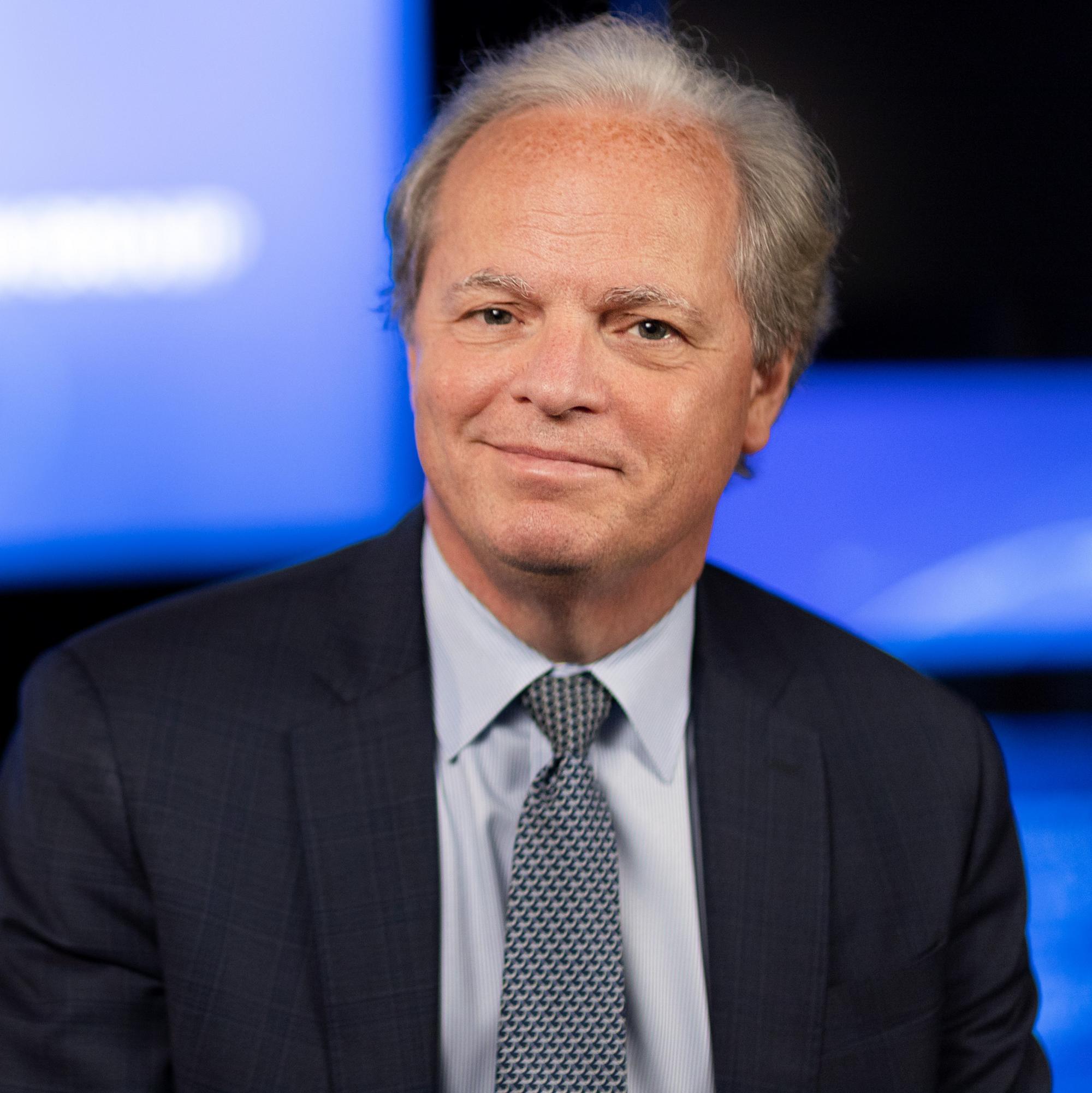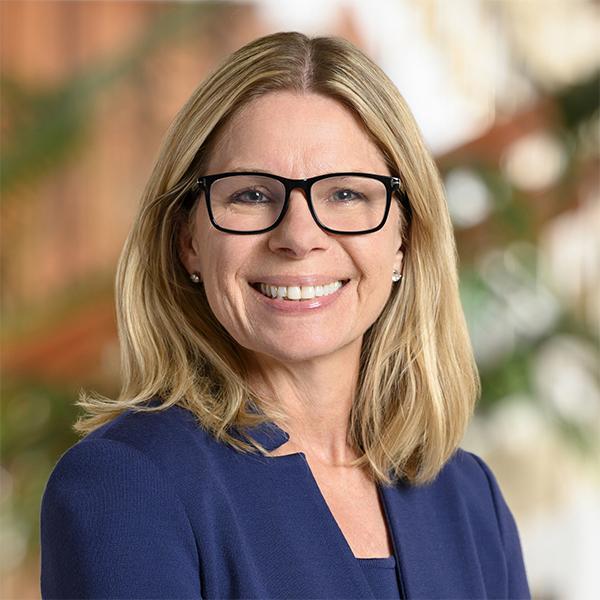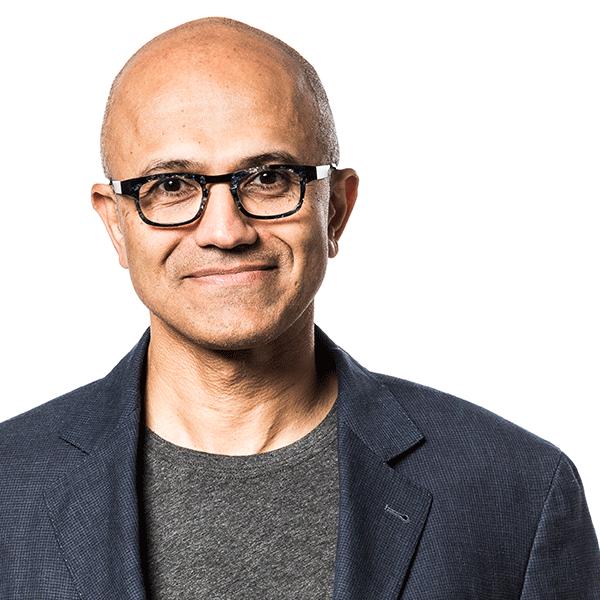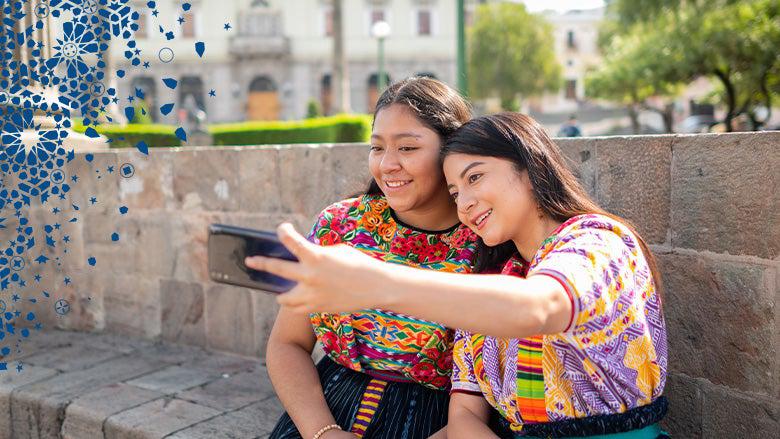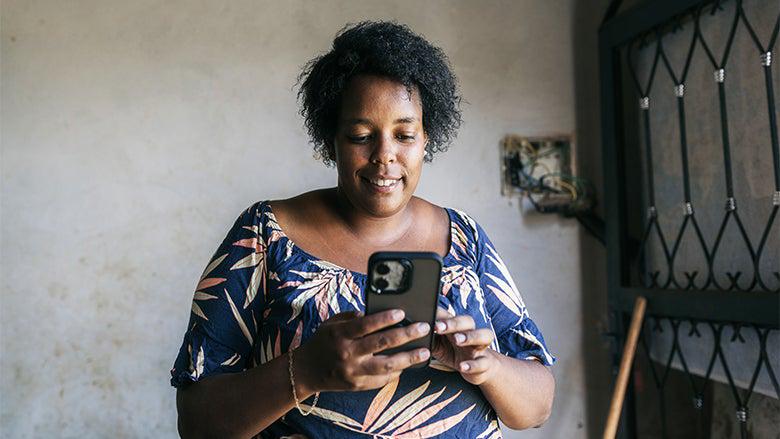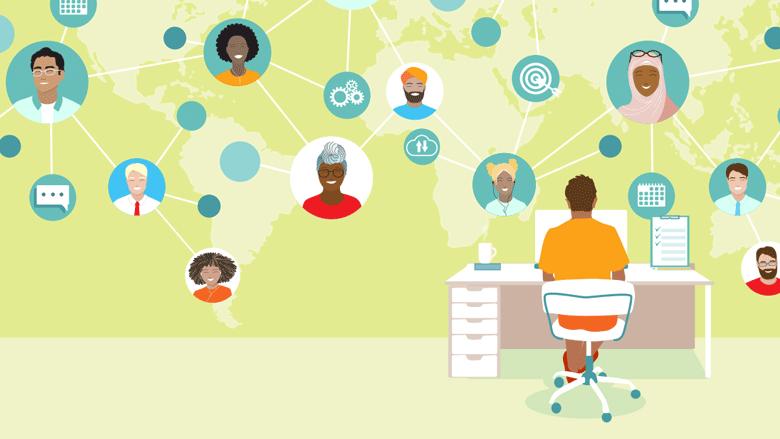SUMMIT OPENING: A Conversation with Ajay Banga and Hans Vestberg
[Stephanie Mehta] Thank you both for being here.
[Hans Vestberg] Thank you.
[Ajay Banga] Thank you. [audience applauds]
[Stephanie Mehta] Ajay, as everyone here in this room and probably watching us on the live stream is well aware, you have been very clear in your plans to transform the World Bank Group to be a better fit for the complex problems that the world's facing today. How does digital help you accomplish that mission?
[Ajay Banga] So, first of all, Stephanie, thank you for doing this. And Hans, thank you for your many years of friendship. Hans is an outstanding and thoughtful contributor, not only to how he runs his company, but to the entire space of technology and digital. And he cares deeply. There's a reason why I have had an old partnership with him, and you will see it when he gets to speak just now. Back to what Steph was asking about, which is to do with a vision of the World Bank and knowledge in digital. Stephanie, we are trying to get the Bank to be fit for purpose for the next 30, 40 years. We have an 80-year legacy. We do an outstanding job. We have wonderful people who live in the most difficult circumstances with their families, bring subject matter expert to work, bring change. Last year, we put 120 billion to work across all our different parts of the institution. They are focused on everything from education to health care, to infrastructure, to whatever the causes in the world. We have expanded our vision to include livable planet, not just the eradication of poverty. Livable planet includes climate change, pandemics, fragility, conflict, violence, food insecurity, all that. Now, in that context, what we're trying to do Is to look at our knowledge as important as our money. People think of us sometimes as a money bank, but when you go to our clients in the countries that receive input from us, yes, we are a money bank, but we're also a knowledge bank. And the knowledge bank part of us, we want to think of it in five verticals. And the first one is people, which is human capital, health and education, and social benefit schemes, stuff that we've worked on together. The second one is prosperity, jobs, domestic resource mobilization, financial inclusion policies, economic policies, that kind of stuff. The third is planet. That's mitigation, adaptation, food insecurity, water, forestry, biodiversity loss, soil degradation, that. The fifth one is infrastructure. In fact, there's the guy who runs infrastructure sitting right here, and that's the guy who runs the knowledge bank. They're all sitting here. Infrastructure is the more traditional one, bridges, airports, ports, roads. But the fifth one is digital. The reason why we want to make a vertical of digital and not let it be submerged in the others is because it enables all the others, and the pace of change in digital is amazing. And if you don't create the focus on it, we will have challenges. At the end of the day, these general-purpose technologies of the past that have taken years, whether it be the steam engine or electricity or the Internet, they took differential years to impact the world. I think the way digital is growing right now under the AI, it'll be a shorter time frame. The Bank needs to be focused for that. I think of digital as the breakthrough technology that takes out the arbitrage of the incumbent and enables new ways to reach populations without the traditional challenge of the expense of reaching them for health care, for education, for everything. We can get through that by breaking through the arbitrage of incumbency. That's the value of digital in that sense. Then there's one other word aspect of it, and then I'll shut up and move on to the next one, and that is, I don't mean digital only as financial inclusion or things for consumers, health and education important. I do mean it for governance. I think that if governments embrace digital, they create transparency, they create clean governance, they create citizen engagement, and I think that is a very important part of digital that we are keen to be a part of. Then, of course, there's the whole AI and data and how we work with that also inside this vertical. This is going to be an important vertical for our bank for the next decades to come.
[Stephanie Mehta] Before we get to the digital divide, which is something that both people on this stage are working very hard to address, Ajay, I first want to ask you, how do you prioritize digital at a time when, as you pointed out in a session that we did together in Davos a few months ago, there are still 600 million people without electricity in Africa alone?
[Ajay Banga] Yeah, 600 million people in Africa alone do not have power. Not at all. I mean, when you fly over the continent, you will see dark patches, not because there aren't people, it's because they're living the way their ancestors used to live. I think that's absolutely unacceptable and it's an issue of human rights. I consider to be as fundamental a human right as the right to breathe. We have to give them access to electricity. But remember that at the same time, one third of the people in the world don't have access to the Internet, and the one third of the people in the world are two plus billion, and here it's 600 million. Some overlap, obviously, because if you don't have power, there's no way to access Hans's capabilities. But even if you have power, clearly there's a billion and a half people who still don't have access to the Internet. And of course, that gets exacerbated when you start talking gender and age, so this gets a little crazier. Hans is the expert on these kinds of numbers. But to me, therefore, there's no trade off. The reality is we have to get those 600 million people connected to electricity. The Bank has made a commitment to reach 100 million by 2030. We're in the process of seeking to expand that ambition to another 100 million. If we can do that, with renewable energy by the way, we've tried it out in Rwanda and Tanzania, we know it can work. Now we have to generate not just money from IDA, which is a huge part of our bank, but also from governments themselves, and most importantly, from the private sector. It's kind of a one third - one third - one third participation in this effort. I think of that as being the baseload for building digital on. Meanwhile, there's the other billion and a half of people who have access to electricity don't have digital. We have work to do with them, too. And then there's the others who do have access to the Internet, but it's not being fully used and exploited for the capabilities that it is possible to do. There's different shades of work to be done with different target audiences.
[Stephanie Mehta] Hans, let me bring you into this conversation. You have been making great strides in bridging the digital divide at home through your work with Verizon and internationally through your work with EDISON Alliance. What works in helping bridge the digital divide?
[Hans Vestberg] First of all, thank you for having me, and I'm applauding you. I understand all the challenge you have. I, of course, for many reasons, have said that digital inclusion is extremely important. I think the 21st century's infrastructure is mobility broader than cloud. And I don't think it should matter where you're born, where you come from and who you are, that you should be part of our society. And today, to be part of our society, you actually need to be digitally included. I've been fighting for Goal 18 for the SDGs for a long time. I gave it up. As many know, it's only 17. My work, both as Verizon but also globally, has always been trying to see that we find the opportunities to take down the barriers, because they're very different barriers, in different words. And let me give you some numbers. Today, roughly 5.3 billion people are connected to the Internet, 2.6 billion are not connected. Of the 2.6 billion, I would say 85%, 90% of actually covered by broadband, some kind of broadband. And people look at me, that cannot be true. It's actually true. And then you start dividing. Where are the barriers? And the barriers are three. Accessibility to technology. Yes, there are probably a half a billion people, or 400 million, that actually outside the telecom grid. Affordability is one of the biggest barriers of all. Meaning afford a device, afford a service plan. That's sometimes a staggering challenge. And finally, the usability. Having application that is actually supporting the society. Meaning education, digital education, digital health care, financial inclusion, being part of the societal opportunities that the government gives you, and being able to work. And it's different in every country. I mean, as we heard, electricity could be in one country, another country could be it's too expensive, there are no subsidized plans. I would say to 95%, all infrastructure in the world is done by private money. The biggest challenge has actually been affordability and usability. Then you understand the challenge of it. It's a multifaceted challenge. There is not one organization, one country, one NGO, one private company can do it, because ultimately, think about those three. Accessibility, affordability, usability. It goes from a sort of grading from private sector. Then you meet each other on affordability, and then usability, I would say in 95% of the countries in the world, healthcare, education, financial inclusion are done by the big institutions and governments. That's how it works. In 2021, where I came out from the COVID-19 I said, now I'm going to do something big here. I actually tried to rally a lot of people around, how can we get more people connected? I actually rallied Mr. Ajay Banga to work with me, and ultimately I started the EDISON Alliance to get…
[Ajay Banga] That's the only reason the EDISON Alliance made any progress.
[Hans Vestberg] And then we formed the EDISON Alliance with one target. We wanted to connect one billion people in five years, but only if it's healthcare, education, or financial inclusion. We love to have Netflix on broadband, et cetera, but that's not what we're talking about. This is societal infrastructure. We rallied. Today we are some 150 champions, 320 initiatives, 130 countries, and we have achieved 784 million people more connected in less than two and a half years, and we're very close to get to one billion. But it is a community of work, and that's what we're doing. And of course, Verizon is doing its part. We're basically doing the majority of private education in this country, we have dedicated three billion collars to digital inclusion in the US. But ultimately, everyone can do something, but you need to come together as a community. Ajay was leading the part of the financial inclusion. His successor at [unintelligible] is doing that today. It's much about NGOs, countries, private sector together doing it. Very different challenge in every market. But, God, this is so important for society.
[Ajay Banga] Steph, two things struck me on the EDISON Alliance. When Hans first… the first meeting we had, he laid out two things, which he probably doesn't recall today, but they were facts. The first one was one third of people don't have access to the Internet. Actually, at that time, it was a little higher. But what shook me was that only one third of people in the least developed countries have access at all. The same one third, depending on which prism you look at it from, is actually quite a scary number. Only one third of people in the least developed countries have access, while globally one third do not have access. That's a very different one third. And it tells you about the digital divide, which actually surprised me. I didn't know that number. The second part that he told me, which made a lot of sense to me, which I again did not know, was that only 500, 600 million people at that time, now 400, were away from broadband infrastructure. I thought it was all about investment in broadband. And he explained to me, that's actually not the case. It's actually affordability and accessibility and then making the usability happen. This was our first meeting, and that's when I started figuring out that this was such an opportunity within our grasp, we have to double down on it, which is what he's trying to do.
[Stephanie Mehta] Ajay, when you talk to world leaders about these issues, and again, coming back to what I asked you earlier, when there are so many other intractable problems, many of which World Bank is working to solve, do you need to make the case for digital inclusion? Do you need to make the case for bridging the digital divide? And if so, what's the argument on.
[Ajay Banga] Both digital and climate, the world has moved very far from five, seven years ago, when a lot of leaders, if you told them about any of these, they would say, but I need to build my schools and I need to build my healthcare clinics. That is not the case. Most leaders today are quite enlightened on the power of digital to breakthrough. If I can step back for a minute, something that Hans and I have talked about, I think of the challenges we face in the world on three sides of a triangle. One side of the triangle is the challenge of inequality, which is the one versus many trade off. More and more it's become, I win, you lose, as compared to, we can all grow together. I think that one versus many, it shows up in gender inequality, in religious inequality, in ethnic inequality, in sexual orientation, in just having the bad luck to be born on the wrong side of the tracks kind of inequality, which is what Hans was saying when he said very quickly at the beginning, it shouldn't matter where you were born or what you look like to get access. That is all how inequality shows up. It could show up in health care and education and financial access, but that's what it is. The second side of the triangle is the tradeoff between humanity and nature, which now people are quite engaged on the whole climate issue, forestry issue, biodiversity issue, the fact that for us to grow, we seem to have to destroy what we have. That is a second side of the triangle, but the third side, which allows the two sides to not fall down under their own weight. This guy's an engineer. He will tell you that they will fall down. The reason they don't fall down is because the bottom is the hardest one to beat. And that's the tradeoff between long term and short term. These are long-term problems. They lead long-term money. The problem is most people, CEOs, politicians are under pressure every quarter, are under pressure every six months, are under pressure every year, or every two-year cycle for elections, or every four-year cycle. But doing the right thing on building an underground train system to alleviate traffic and therefore things to do with pollution, is not a two and three and four-year exercise for a politician. For him to stand up in front of his investors and say, I believe I am putting these resources for the right reason, because they will pay back my company, because of greater connectivity and data use, and will make my company even more valuable to future generations. It's not easy. Ask him. He does it every day. It wasn't easy for me in my financial inclusion time. The problem of short term versus long term is the biggest issue. What is the two things that allow us to break through? One is technology and digital. It breaks through all this, all this. And the second is a sense of crisis. A sense of crisis is your best friend. Never let a crisis go waste. A sense of crisis is your best friend in getting people to agree to tackle this triangle, along with the enabling tool of technology and the biggest headroom is geopolitics and fractionizing of the global order. That's why I believe in digital for us. That's why I believe that there is no tradeoff. Leaders see the triangle in their own words, in their own way, that suits their country. They see digital as the enabler. They feel the crisis. If they're in the emerging markets, they worry about geopolitics, and they're really keen to move on. This is not now a question of, hey, we should do this. Their biggest hunger is tell us the best way to do it. Help us do it, make it easier for us. Bring us the knowledge, give us the money, give us the capability, bring the private sector. That's what they're talking about.
[Stephanie Mehta] Hans, how do we incentivize more members of the private sector to tackle the issue? Why isn't everyone a member of the EDISON Alliance?
[Hans Vestberg] First of all, we decided to make it very narrow because we want to succeed with the target, to get one billion people connected in these verticals. And as Ajay says, what I'm doing, I'm building sort of the foundation. Broadband is great, but broadband or connectivity is only good when you use it for something good, meaning digital, healthcare, education, financial inclusion. There are other industries later on that we might tackle, but this has been it. I think it comes back to what Ajay says If it's part of your strategy, then it becomes very natural. When my strategy is very clear. I want to connect as many people as possible to my network. Being part of that and doing it for a greater good, it's just this and having more people [unintelligible] The example of [unintelligible], we have infrastructure in the United States in every zip code. There's not green energy in many of those zip codes. What I do, I do green bonds. I'm on my 6th green bond. I admitted it yesterday. I'm on six billion dollars in green bond. The biggest private investors in green bonds. Because why? Because my cost is going down in green bond. I’m adding that. The bonds are cheaper than my normal debt. It's a good business, but it's also doing the right thing for our society.
[Ajay Banga] Tell them how much demand you had for the last green bond.
[Hans Vestberg] For the last billion I had, last week, I had the amount of 7 billion. The green bond market is not dead, clearly, but again, it's part of our strategy. It's not any philanthropy I'm doing.
[Ajay Banga] But he's also very disciplined. He measures exactly where that money is going. He's transparent about it, he shows it to people. He's not scared of discussing it. And if you're an investor, you know, you're going to get paid from Verizon. This is the sweet spot of green bonds. A place like Verizon.
[Hans Vestberg] Yeah. And every project we know exactly if it's wind farms in Austin, whatever. That's what we're doing. We've exhausted five billion and we just meet to the six. But I come back to, there are many people working in digital inclusion, and I applaud it. But you need to find your niche where you actually, your business is there as a private sector. How you can work with governments, how you can work with NGOs and actually make something bigger. Ultimately, that has to resonate with your strategy as a company and your stakeholders and your shareholders.
[Stephanie Mehta] What stakeholders, as you look at the broader digital divide issue, are being excluded from the conversation. Who needs to be brought in?
[Hans Vestberg] Are you asking me?
[Stephanie Mehta] Yes.
[Hans Vestberg] On the digital inclusion, it's very different. I would say you find countries where the government needs to be much more active, using the infrastructure to get all their citizens being part of the system. There are countries where it's an overemphasis of building the infrastructure, where it's more important doing subsidies for low-income families, for the device and for the service fee. It's very different in different countries, and that's why we have EDISON Alliance, we have lighthouse countries that are sharing the best practice for their countries. If I had one solution, it's only NGOs or countries, I would say it, but it's very different from country to country, and it has to be different solution. But we have the common goal that it shouldn't matter where you're born or where you come from or who you are, that you should be part of our digital society and all the benefits that some of us had when we were born.
[Ajay Banga] I will say that I found over the years that foundational principles help. And Hans, before he came to Verizon, I used to joke that he was a hardware guy. He used to run a small company called Ericsson for many years. And that's how I first met him. And I think providing infrastructure is a core element. But on top of that, creating a digital identity platform for citizenry is kind of foundational. I believe your government should be the owner of your digital ID.
[Hans Vestberg] Absolutely, 100%.
[Ajay Banga] Private companies should not own that. It is the social contract of a citizen with their country to have an identity, a currency and safety. You should not take that away from them. They should have the digital identity. That digital identity should guarantee the privacy of that citizen. It should help them with their security, but the government should give the identity. Once you do that, then connecting them to the infrastructure that a private company, whether Ericsson or Verizon or combinations of them, in fact, mostly it's a combination, can build. Then the question is, what do you do with it that requires that digital ID so you can start connecting with that citizen? Now the question is, when you connect with that citizen, you must ensure that governments guarantee the privacy of that citizen, because if you don't do that, you will run into trouble with the acceptance of the idea. If you want this to be embraced around the world, yes, get the infrastructure, get a digital ID. That's what we used to talk about even earlier. Get that going and then move from there.
[Hans Vestberg] Yeah. And based on that, you can get the financially included, you can get the credit, you get a back insurance, you can start a business. Everything is built on…
[Ajay Banga] SME credit. Everything flows from there.
[Hans Vestberg] Yeah. And that's so important sometimes we miss that moment, how important is the infrastructure that we talk about getting broadband in the hands of people? Yeah, it's great, but it's actually to have everything around it if we're thinking about the societal challenges we have today. And that's what I'm trying to advocate for all the time, that it's a matter of what you're doing with it and not only having broadband and you say, hey, let's build broadband, it's going to be great. Of course, I like that. That's my business. But how do you do it? How you connect with your citizens of your country? How do you give them a digital identity? How do you get a bank account? How do you get digital education? We know with the population growth in certain parts of this planet, they will never be able to build a school in brick and mortar. They will not have doctors enough close by, so they need to find new solutions. If not, we just separate the word even more. The divide is getting bigger and we're 2.6 billion still not connected. We have a goal of one billion. Hopefully we'll cross that sooner or later this year, and then we're going to see what we're going to do next, because then it's going to still be…
[Ajay Banga] This thing about the divide. We haven't talked about AI, and I'm assuming you're getting there, but AI has all the benefits we talk about. I just look at one, and I'm not talking about risks in terms of weaponization. All that's interesting. I'm just talking about the divide. What do you need to do to use AI? Right now businesses in the developed world are all embracing AI. Forget about Verizon, they actually understand what they're talking about in AI. Even people who are relatively naive about AI are rushing towards it because of the fear of being left behind. FOMO is pushing them towards it. When you go to the developing world, people don't have access to the Internet. Forget about AI in businesses. And so that divide is going to grow if they're not careful. Second, what do you need to be able to do AI? You need good data, as in clean data, stored in the best way, so access to it for the AI engine is simplified. Second, you need lots of computing power. Third, you need lots of electricity. Back to my earlier starting point on to run the computing power. Fourth, you need people who understand how to use that data to create algorithms that can then be used to create the hypotheses that in turn generate the result from that AI system. If you think of the developed world and some of the larger middle market countries, they have begun to cross this point, but the developing world is well behind on all these attributes. If this technology is going to move in ten years, what the steam engine did in 100 and what the Internet did in 30, then we don't have 30 years to solve this problem. That's the sense of crisis that I'm trying to bring into what I talk about. I think time is not our friend in this topic.
[Hans Vestberg] I agree.
[Stephanie Mehta] And we will have a robust conversation about artificial intelligence and all the constituencies that need to come to the table immediately following this one. In our few minutes remaining, Hans, I'll start with you, and then I'll ask Ajay the same question. Here at the Global Digital summit 2030, how will we know if the bets that we've talked about today have paid off?
[Hans Vestberg] It's fairly easy to measure in my case, because we're going to measure that people are connected and we're going to measure that they are not only being connected, they're actually using it by digital education, healthcare or financial inclusion. And that should bring prosperity. That's how we're going to measure it. I think we're going to be in a way better place. Sometimes when you look backwards, I mean, if you go back ten years ago, it was only one third of the world's population that was connected to the Internet. It's going pretty fast. But as Ajay is saying, it's a lot of other things happening in countries like in US, western Europe, when it comes to AI. If we don't have the fundamental infrastructure in the rest of the world, it's going to separate again. It's very important that we continue. There's still going to be, I think, a portion of our population that's going to be outside the grid because they choose to be outside. They don't want to be in part of it, and that's fine. But for anybody who wants to be part of the digital inclusion, digital society, we should provide for that. And hopefully, when we sit there, 2030, everyone that wants to be part of our digital society, they should be part of it and have access to the most fundamental services that a citizen, a person on this planet, should have. And that's my goal, way above my daily work at Verizon. But if there's something I want to give back to my society, what it is given to me is that. And then how far I would be, I don't know. Hopefully, Ajay will invite me back 2030 and I can talk about it.
[Ajay Banga] I may have retired by 2030. I have a five-year term, and it depends whether I do another one. But as all the jokes aside, we have a corporate scorecard of 150 items right now, and we're trying to bring it down to 22, 23 of which two will be focused on digital. Those are more in the category that he's talking about. I call it output measurement. Not just input, but output is how many are connected, what kind of skills, jobs, blah, blah, blah. What I would like to get to after that is what the impact of that is in terms of outcomes.
[Hans Vestberg] Exactly.
[Ajay Banga] Do we close the gender gap in digital in the process? Like, for example, about what is it, Hans? 12%, 13% is the gap globally between genders. But in the developing world, it's one third. Roughly.
[Hans Vestberg] Yeah, roughly. Roughly. In this numbers, roughly. It's clearly skewed to male. When it's really tough markets, it's way higher digital inclusion for males than females.
[Ajay Banga] This is my encyclopedia, by the way. He has this data somewhere in his head. That gap has to close. But more importantly, what has to close is what it does to their lives. The quality of education they get, the quality of job they get as a result, do they get access to more, to opening more businesses? Do they get access to more credit for their business because all this happens? That's the outcome measurement. I don't think we'll be there in 2030, but I think we can get the output going, and then we have to get outcomes going in the coming years after that.
[Stephanie Mehta] Ajay, Hans, thank you so much for this conversation this morning, and thank you all.
[Hans Vestberg] Thank you so much.
[Ajay Banga] Thank you. [audience applauds]


